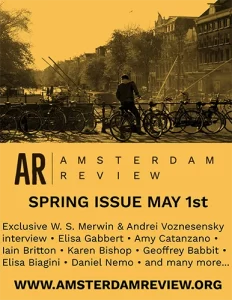Bill’s Formal Complaint
In Bill’s Formal Complaint, Dan Kaplan presents us with Bill, a typical American male who must face his life’s various stereotypical boredoms with a smile and a wink, all the while struggling to avoid falling prey to anguish or despondency. Told in a haphazard, reflexive memoir style, the problems of Bill’s existence past and present are written in an informal, absurdist jump cut presentation, making it read like the haphazard biography of a C-list celebrity.
In Bill’s Formal Complaint, Dan Kaplan presents us with Bill, a typical American male who must face his life’s various stereotypical boredoms with a smile and a wink, all the while struggling to avoid falling prey to anguish or despondency. Told in a haphazard, reflexive memoir style, the problems of Bill’s existence past and present are written in an informal, absurdist jump cut presentation, making it read like the haphazard biography of a C-list celebrity.
Besides being a satirical court jester figure, Bill is in a perpetual state of dissatisfaction. In the collection’s title poem, “Bill’s Formal Complaint,” Bill blames his mother: “If mother hadn’t fed me with that busted / spoon, I’d be hilarious now. And given / proper chance, I could cleanly shuck / the sharkskin pants off a runway model.” Elsewhere, Bill appears to compare the immigrant experience to his own appearance, as in “Today #2”:
Today you drape yourself across the fire
escape. You are ageless, thin but iron
immigrant. You have the muscle shirt,
the solitary chest hairs, glistening forearms,
hand-rolled cigarette and you salvage stray
tobacco strings from tongue and teeth
In Bill’s surrealist and maligned world, he translates melancholy and humorous writing from Hungarian, gets strange phone messages and goes with his girlfriend to meet their relatives who all look disturbingly just like his girlfriend. These conversational poems use a rich lyricism for a variety of effects, including raising questions about our most mundane hardships and imperfections, as well as the absurdities that lie behind them.
In the second stanza of “BEEEP,” a friend leaves Bill a long and detailed message with more questions than answers:
I guess those are the last of my supply
of pearls. Question: couldn’t you prophesy
this end? The steps were deafening. I pulled
your files. What exactly did you do all day?
So what I’m trying to say is this: will you
Please get your shit out of my cubicle?
The cumulative effect of these satisfyingly eclectic poems works like linguistic game pieces, providing fragments of a familiar man for us to play with and interpret and seek joy in. Kaplan manages to convey the characteristics and haphazard scenarios of Bill’s life with humor and aplomb, allowing us to laugh at his plight even as we sympathize with him. It is only after we’re done feeling pity for Bill that self-recognition sets in, because through all the weirdness and absurdity of Bill’s life, there is still always that kernel of truth that is, at the very last, revealed to be part of us.





